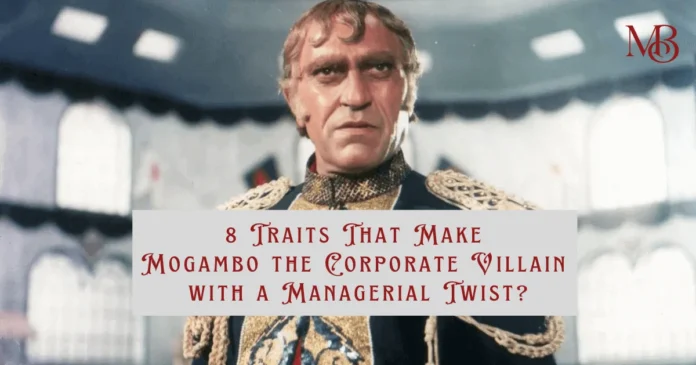There are few characters from Bollywood’s villainous rogues’ gallery that Mogambo, the menacing terror from Mr. India (1987), carves into one’s memory. Amrish Puri has played him superbly, as the megalomaniac hellbent on world domination. His larger-than-life persona, added to his now-famous catchphrase, “Mogambo khush hua!” (Mogambo is pleased!), still has a strong presence in Indian pop culture.
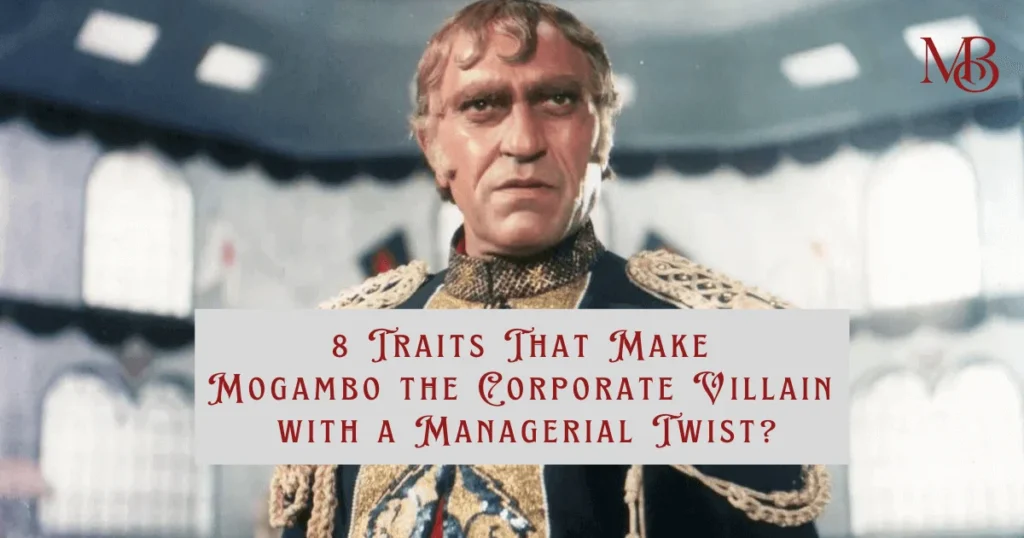
But what if we framed Mogambo in a different perspective? Suppose we view him not as some bloodthirsty villain but as a head of corporate management? Might Mogambo be an effective manager within business? In as much as his methods are dubious, if not outright villainous, certainly some of the characteristics that define Mogambo could be likened to those popular and accepted within business: particularly, leadership. This blog takes a lighthearted take at how Mogambo’s management style could be applied to a corporate setting.
You might also like: Why Pookie Baba is My Favorite? From a Marketing Perspective
1. Clear Vision and Strong Ambition
The very pillar of any good leader is a clear vision. Even for Mogambo, who towers over everyone with his villainy, has an unwavering goal to himself: total world domination. He does not waver from his ambition, nor does he let any of his minions forget about this single, ultimate objective.
Corporate world leaders must be clear-sightedly focused. A good manager can tell where the company or team is headed and why it’s important. The employee will be far more aligned with the company mission once they understand the goal. Mogambo’s focus, even though terrifyingly malevolent, mirrors that which corporate leaders strive for-being the best in their field, dominating the market, or innovating new solutions.
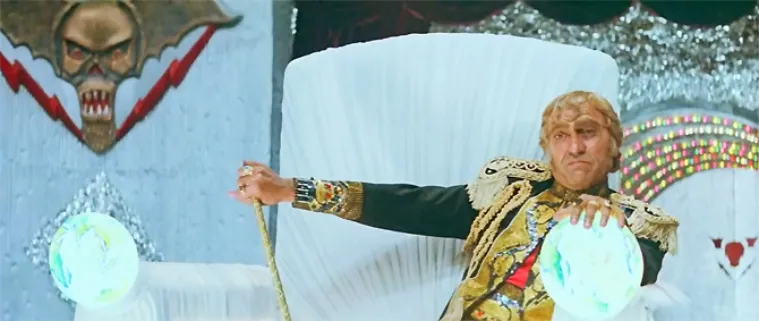
Corporate Learning:
Even though the vision of Mogambo is extreme, a good manager should ensure his team knows what the goals of the company are and how their role impacts on such developments. A clear vision helps to align the team and guide decisions.
2. Commanding Presence and Leadership
Mogambo’s charisma is a fact. The man walks the way that his subordinates could be awed and also frightened by him at the same time. When the man enters the room, his subordinates stand up straight, expecting the command. This style is authoritarian, though not ideal in a modern corporate setup, there indeed is something said about commanding presence as a leader.
A strong presence can inspire confidence and respect in corporate terms. Employees tend to look for support from their managers in trying moments. If leaders project confidence minus intimidation, they most likely earn the loyalty and trust of their teams.

Corporate Lesson:
While Mogambo leads through fear, the effective manager leads through respect and confidence. A good commanding presence, tempered with empathy, goes a long way in rallying a team during tough times.
3. Task Delegation: Trusting Daga and Teja
The most impressive management capability of Mogambo is in delegation. He doesn’t go micro-managing, and at least he doesn’t. It is rather surprising that in the execution of the most crucial tasks, he entrusts Daga and Teja. Each one has his defined role, and Mogambo trusts them to carry on it without turning into a straw.
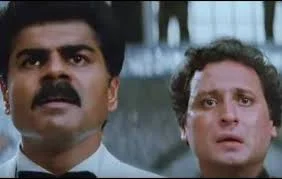
Daga and Teja are two of the reliable lieutenants in the hands of Mogambo. The more intelligent of the two is Teja, who takes care of the critical work involving tactical operations. Daga, on the other hand, is not as strategic but faithful and diligent when it comes to doing the little jobs done on the ground. Mogambo uses both to an important extent of his strengths-for planning and manipulation, Teja; for executing the orders, Daga. This is a very important skill because Mogambo shows good delegation with respect to allocating a task according to one’s actual strength, which is an attribute of good delegation.
Delegation is the art any manager in the corporate world needs to learn. No leader can do everything. Delegation not only shares the workload, but it also empowers the staff by entrusting them with responsibility and ownership of projects to the members. Mogambo getting Daga and Teja to highlight the significance of understanding where each member of the team could be effectively utilized.
Corporate Lesson:
Mogambo believes in his subordinates to take charge of significant responsibilities, something an excellent manager should have. This is evident when the manager delegates, focusing on where the company should go while giving others the ability to grow and contribute to the organization. He realizes each employee’s strength and takes them up in their appropriate tasks, just like the way he acknowledges Daga as responsible to reach Bikaner and Teja to handle remaining members.
4. Proper Reward System
Mogambo khush hua” is more of a boast than a catchphrase. Every time one of his many underlings like Daga or Teja succeeds in carrying out his plan, he gives them the line. In this villainous world of his, this kind of acknowledgment is enough to inspire unstinting loyalty and effort from his followers.
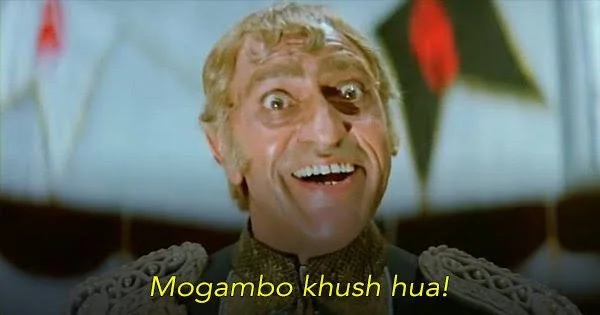
Acknowledge the people in an organization. People feed on acknowledgment. “Mogambo khush hua” does not cut it. Acknowledgment of achievement, big or small, keeps morale and motivation up. The more managers celebrate the successes of their teams with public recognition, rewards, and even thank-yous, the more likely they are to have involved and motivated employees.
Corporate Lesson
Even among employees, recognition and rewards play an important role in improving morale. Managers should hence become aware of the necessity of providing proper acknowledgement to the efforts and success of their team within optimal times. Through this means, there will be a positive feedback loop motivating them towards perpetual performance.
5. No Compromise over Accountability
Mogambo cannot allow failure. In his world, failure has often been accompanied by fatal consequences but accountability to a vast extent has also been generated among his minions. Mogambo’s regime leaves no room for excuses and works must be done just the way they have been ordered.

In the corporate world, though punishment is not the answer, accountability is critical. Accountability in a system will make sure the team will take ownership of the tasks and responsibilities undertaken. In the wrong circumstances, an excellent manager will do good things and encourage learning from the mistakes instead of simply punishing.
Corporate Lesson:
The positive alternative to such reactions as Mogambo’s would be accountability-through-clear expectations, follow-throughs on commitments, and constructive debate of issues as they arise.
6. Entertainment and Employee Morale: The Hawa Hawaii Factor
Perhaps the most interesting aspect of Mogambo’s leadership is how he manages to entertain his “business partners”. In one particularly memorable scene, he invites Miss Hawa Hawaii (played by Sridevi) to put up an elaborate show for his guests. It’s not just a minute of cinematic spectacle but rather speaks about Mogambo understanding keeping his audience (and by extension, his team) engaged.

In the corporate world, recreation or entertainment can be a great chance to keep the morale of the employees intact. Nowadays, many companies try well-being by team outings, events, and other recreational activities to break the monotony and build better bonds among their staff. Mogambo’s gesture, though for his business associates, mirrors this modern management technique.
Corporate Lesson:
Entertainment and breaks for the employees to de-stress can help increase productivity and positive sentiment. Events, team-building activities, or even casual celebrations in the corporate set-up can leave a lasting, positive impact on the team’s spirit. Mogambo goes overboard with the drama, but it does talk to the engagement beyond work.
7. Mistakes: The Fear-based Leadership
There is some managerial quality to Mogambo’s approach. However, his biggest weakness is that he manages to get the job done through manipulation by fear. He threatens and intimidates people into getting what he wants. Fear-based leadership fosters a poisonous environment wherein the subordinates function out of self-preservation rather than true motivation or commitment to a cause.

This type of leadership cannot work in the corporate world. Fear-based management tends to result in high turn-over among employees, low morale, and lack of innovation. Employees living in fear of their managers may execute their orders, but they are unlikely to bring creative solutions nor go that extra mile, and slowly, eventually, it results in burnout and disengagement.
Corporate Lesson
Mogambo’s defeat as the leader lies in his fear strategies. Corporate leaders today need to motivate, not scare. Much better tools of producing loyal and highly productive teams are empathy, good communications, and support.
8. Ethical Leadership: What Mogambo Was Lacking
In contrast, one could deem that Mogambo indeed possesses some characteristics like having a clear vision, delegation, and acknowledgment, which are solid management qualities. Yet, his leadership style is fundamentally wrong. Ethical leadership in an organization today is very basic. What constitutes the cornerstones of successful leadership is trust, fairness, and integrity. It is on these that people’s creativity, innovations, and skills thrive. Without them, you risk losing not just employees but reputation.
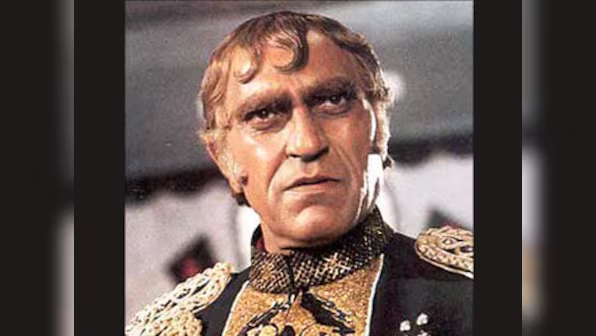
Corporate Lesson
The ultimate failure as a leader finds its roots in lack of ethics. A greater leader must do right, not what is easy. Ethical leadership forms trust with staff, customers, and stakeholders and will lead to long-term successes.
Mogambo in the Corporate World
Mogambo will never be the ideal corporate leader, but looking at his character through a management lens offers some interesting insights. His strong vision, delegation skills, recognition of success and commanding presence qualities would serve him well in any business environment. His efforts at being humorous and placating his subordinates, as with the example of Miss Hawa Hawaii, reveal an awareness of morale. However, his reliance on fear, coupled with a lack of ethical leadership characteristics would be enough to send him down the sinking ship in any modern-day working environment.
You might also like: Who is Pookie Baba? Meet the Internet’s Favorite ‘Viral Baba’
It’s great to have a memorable villain at the end, but it is leaders who inspire, support, and act responsibly in the boardroom. If Mogambo ever traded his evil empire for a corporate office, he would need to do some catching up. After all, a happy and motivated team makes for long-term success, and not just a fleeting “Mogambo khush hua” moment. Follow our Odyssey page for more such read.

